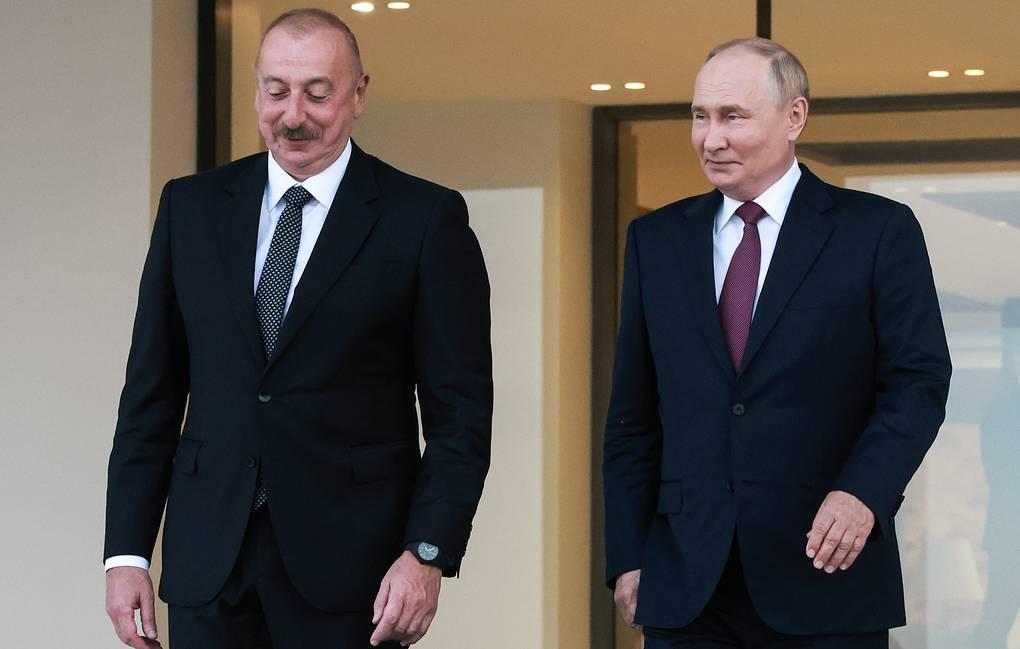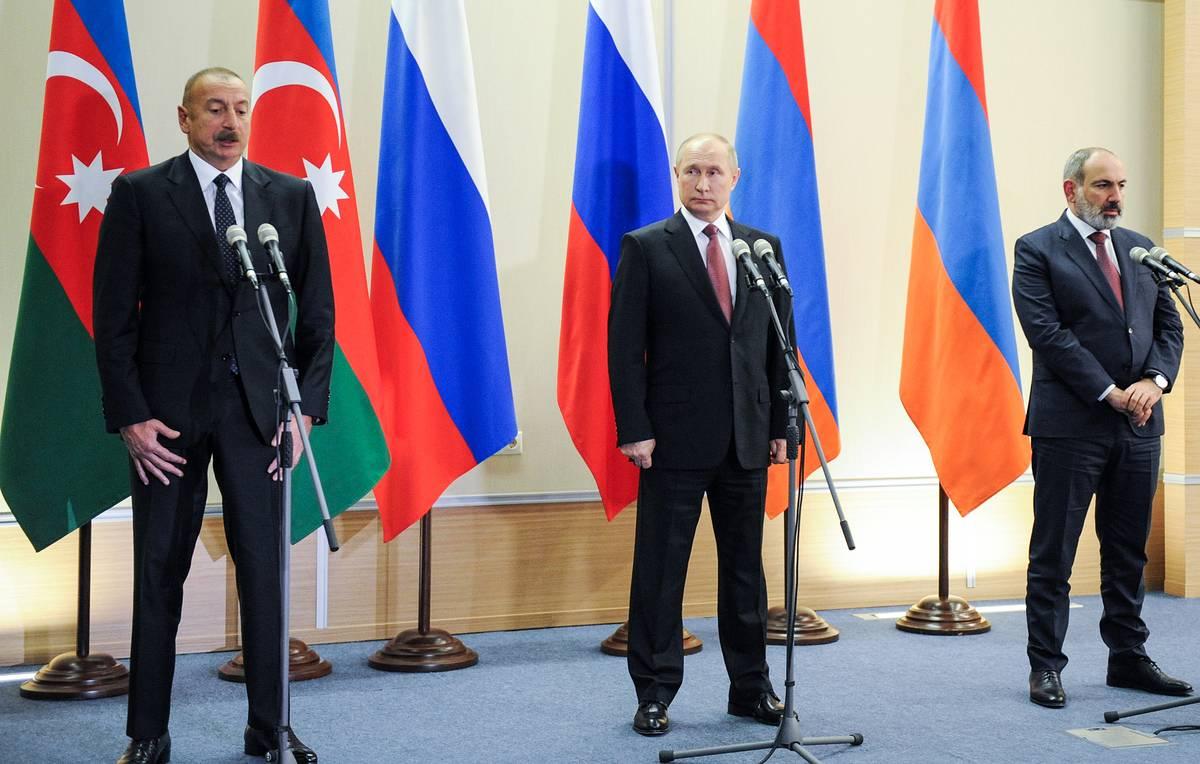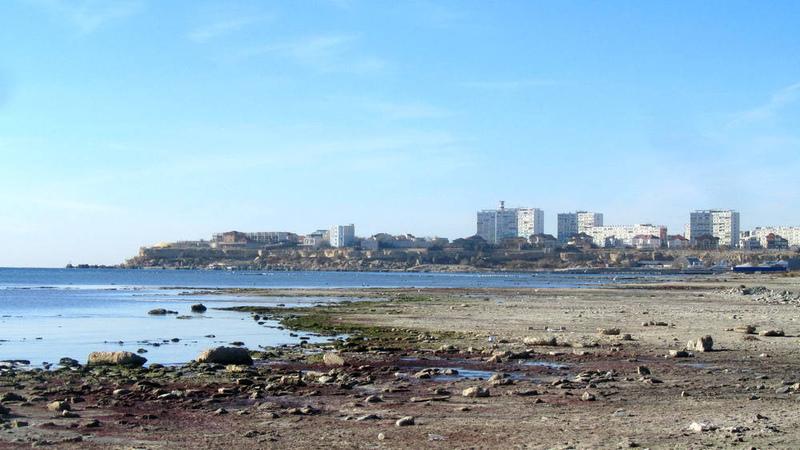Putin's Baku visit: Cementing strategic bonds amid Kremlin's dilemma South Caucasus at a critical juncture
The August 18-19 state visit of Russian President Vladimir Putin to Azerbaijan marks a significant milestone in the evolving relationship between Moscow and Baku. The visit, characterized by both one-on-one and expanded format meetings between Putin and Azerbaijani President Ilham Aliyev, underscores the depth of bilateral ties that have been carefully cultivated over the years. The meetings, capped by the adoption of the Joint Declaration of the Presidents, signal not just the current strength of relations but also the potential for even greater cooperation in the future.
But why is V. Putin so keen on strengthening relations with Azerbaijan? The answer lies in the strategic importance of Azerbaijan as a regional power in the South Caucasus, a gateway to the Caspian Sea, and a key player in energy and transportation corridors vital for Russia's broader geopolitical goals.
Why Russia value its alliance with Azerbaijan?
The burgeoning alliance between Russia and Azerbaijan is rooted in shared interests across multiple domains. Economically, Azerbaijan's role as a major oil and gas producer makes it a crucial partner for Russia, particularly as the global energy landscape shifts. The North-South transport corridor, a project discussed in depth during Vladimir Putin's visit, exemplifies the strategic infrastructure that binds the two nations along with dozens of others. This corridor, which connects Russia to the Indian Ocean via Azerbaijan, is vital for Moscow's ambitions to maintain and expand its influence in Asia.
Furthermore, the cultural and humanitarian ties between Russia and Azerbaijan play a significant role in the relationship. With over 324 Russian-language schools and the presence of Russian universities in Azerbaijan, the cultural exchange between the two nations is robust and growing. This is more than just soft power - it ensures that Russian influence remains strong in Azerbaijan for generations to come.
Putin’s commitment to peace: A strategic move or genuine concern?
During the visit, President Putin emphasized Russia's role in facilitating a peace deal between Azerbaijan and Armenia, reflecting Moscow's desire to maintain its influence in the South Caucasus. However, this stance also reveals the delicate balancing act Russia must perform. While Moscow has historically been Armenia's ally, recent shifts in Yerevan's foreign policy - marked by a growing alignment with the West -have strained relations. Armenia's increasing engagement with Western countries has undoubtedly irked the Kremlin, pushing Russia to seek stronger ties with Azerbaijan as a counterbalance.

But is Putin’s commitment to peace in the region purely strategic, or does it also reflect a genuine concern for stability? The answer likely lies somewhere in between. For Russia, a stable South Caucasus is essential not only for regional security but also for safeguarding its own interests, particularly in the face of Western encroachment. Thus, by positioning itself as a mediator, Russia aims to remain a key player in the region while countering any further drift of Armenia towards the West.
The two presidents also touched upon regional security issues and efforts to resolve the Armenia-Azerbaijan conflict. Putin stated during talks with Azerbaijani President Ilham Aliyev that Russia was ready to facilitate the signing of a peace treaty between Baku and Yerevan, adding that he would touch base with Armenian Prime Minister Nikol Pashinyan after the Baku visit.
For Russia, the trip is crucial amid deteriorating relations with Armenia. Moscow is now seeking to preserve its influence in the South Caucasus by strengthening ties with Baku. After being defeated by Azerbaijan, Armenia has started drifting towards the EU and the US.

Economic ties
The economic aspect of Vladimir Putin’s visit cannot be overstated. With bilateral trade exceeding $4 billion and Russian investments flowing into Azerbaijani markets, the economic partnership between the two countries is set to grow even further.
The discussions during the visit highlighted the potential for increased cooperation in various sectors, including energy, transportation, and industrial manufacturing. Russian companies like LUKOIL, KAMAZ, and Sollers are already well-established in Azerbaijan, and their continued success is indicative of the favorable conditions created by the Azerbaijani government.
Moreover, the modernization of the North-South transport corridor is a project that promises significant economic benefits for both countries. The ability to transport up to 30 million tons of cargo per year through this corridor will not only boost trade but also enhance the strategic importance of the route for global commerce.
Experts point out that as part of deepening cooperation with Moscow, Baku would probably enhance participation in Eurasian economic initiatives, particularly within the Shanghai Cooperation Organization (SCO) and the BRICS group.
A pillar of bilateral relations
Humanitarian cooperation between Russia and Azerbaijan has also been a focal point of the two presidents’ relations. The strong presence of the Russian language and culture in Azerbaijan, coupled with educational exchanges, fosters a sense of shared identity and mutual respect. The potential establishment of a Russian-Azerbaijani university in Baku, as discussed during the visit, could further solidify these ties, making education a cornerstone of future cooperation.
Another critical issue discussed during the visit was the environmental situation in the Caspian Sea. The alarming rate at which the sea is becoming shallow poses a significant threat to the region's ecology and economy. Both leaders acknowledged the need for a coordinated response, not just bilaterally but also involving other Caspian littoral states. This environmental challenge presents an opportunity for Russia and Azerbaijan to lead a regional initiative that could have far-reaching implications for environmental security.

Future of Russian-Azerbaijani ties
As the South Caucasus continues to navigate a complex geopolitical landscape, the relationship between Russia and Azerbaijan will likely become even more pivotal. Putin’s state visit is a clear indication that both nations are committed to deepening their ties across all sectors.
But questions remain: What will be the long-term impact of Armenia’s westward shift on the balance of power in the region? How will Russia’s and Azerbaijan’s strategic interests align as global dynamics continue to evolve? And, most crucially, can Moscow maintain its influence in a region where competing powers are increasingly active?
The answers to these questions will shape not only the future of Russian-Azerbaijani relations but also the broader geopolitical context of the South Caucasus. What is certain is that the recent state visit has set the stage for a new chapter in this strategic partnership - one that will be closely watched by both allies and adversaries alike.








